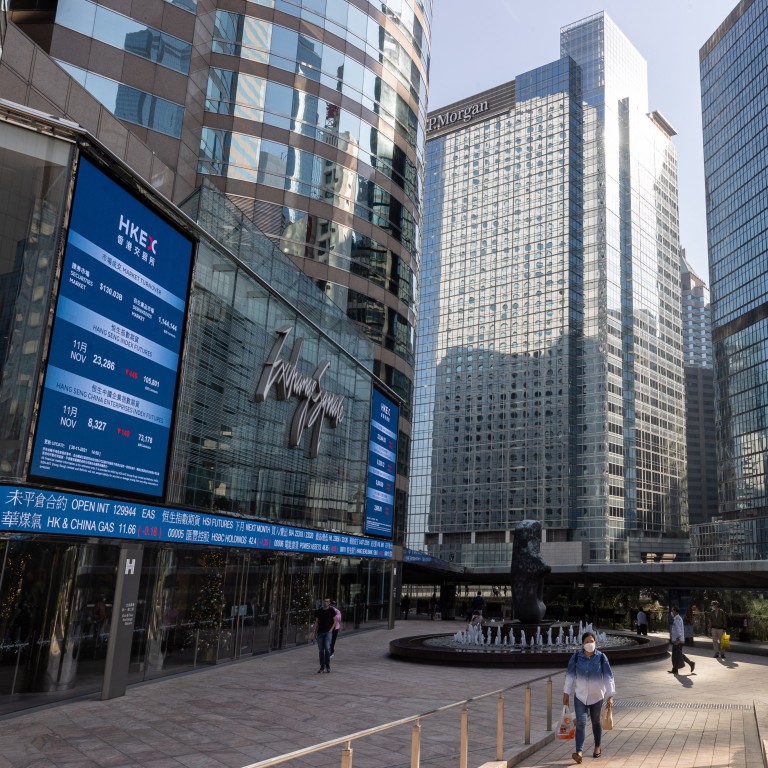
Pinduoduo, NIO are among 27 US-traded stocks eligible to list in Hong Kong, Goldman says
- Pinduoduo and NIO are among the US-listed Chinese companies that could apply for secondary listings in Hong Kong, says Goldman Sachs
- Hong Kong is likely to welcome returning Chinese companies as it seeks to bolster IPO rankings and help companies amid regulatory pressures
A Hong Kong listing would give foreign investors in these companies another avenue to cash out, as they will be able to convert their ADRs into Hong Kong shares, as the two will be fully interchangeable.
Stocks slip as Alibaba paces losses while Omicron, Evergrande hit sentiment
Housing transaction services provider KE Holdings, Lufax Holding, Tencent Music Entertainment Group, and e-commerce company Vipshop Holdings were also on the list.
Under criteria set by the Hong Kong stock exchange, companies can have either individual or corporate weighted voting rights (WVR), a structure that allows founders and key managers to own shares with more voting rights than others.
The WVR applicant’s market cap also needs to exceed HK$40 billion (US$5.13 billion), or more than US$10 billion in the current financial year if its revenue surpasses HK$1 billion, based on HKEX rules. The Goldman list, however, does not include other requirements, such as companies that seek secondary listings in the city must have at least two years of financial track record and regulatory compliance on a qualifying exchange.
Data security rules key with city riding high in Didi U-turn
News of the ride hailing giant’s decision to delist in the US has exacerbated market worries of a deeper economic decoupling between China and the US. There are also concerns that increased regulatory pressures – in both countries – could force more Chinese ADRs to delist from the US.
Bloomberg reported on December 1 that Chinese regulators are mulling plans to ban companies from listing overseas in a variable interest entity (so-called VIE) structure, although the China Securities Regulatory Commission on Sunday denied any imminent restrictions on overseas listings.
The US Securities and Exchange Commission (SEC) on December 2 finalised rules for the US Holding Foreign Companies Accountable Act. The Act will force foreign companies to delist from US exchanges if they fail to turn over audit results for three straight years, a window that is expected to expire by late 2023.
“ADRs that engaged in voluntary delisting have usually seen positive returns in the lead-up to their privatisation/delisting but those that were forced to delist tended to underperform,” said Goldman analysts, led by Kinger Lau. “However, this trading pattern may not be applicable to a broad-based regulation induced or company specific delisting scenario.”
How Didi forced its way from Beijing to New York - and ended up in Hong Kong
Around US$1.5 trillion of the market value of Chinese ADRs and tech companies has evaporated since a peak in mid-February, equivalent to a 50 per cent correction or 10 per cent of China’s 2020 total gross domestic product.
Didi, for example, plunged 22.2 per cent in the US last Friday, the biggest daily drop since its June 30 initial public offering. Pinduoduo shed 8.2 per cent on the same day. The sell-off continued into Monday, as the Hang Seng Index shed 1.8 per cent while tech stocks listed in Hong Kong lost 3.4 per cent – the biggest slump in almost three months.

